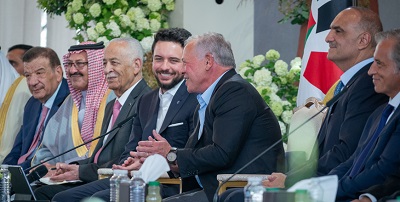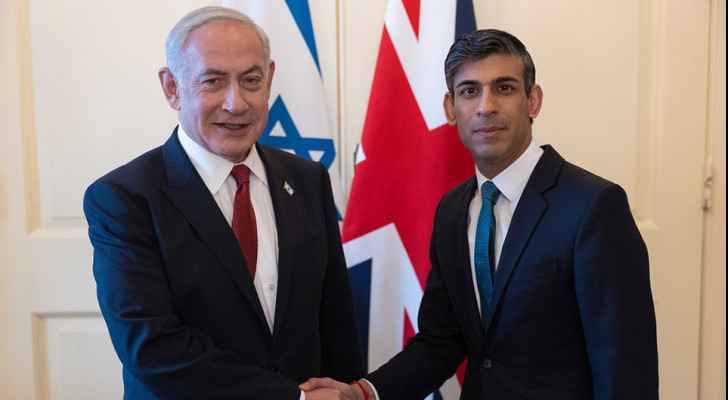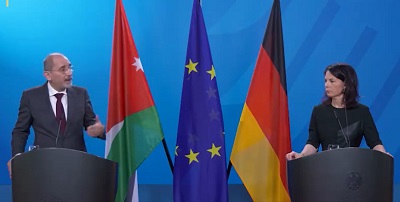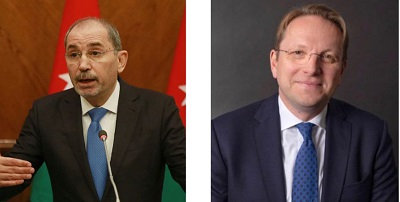‘Everyone can raise mental health awareness’
By Camille Dupire , The Jordan Times
AMMAN — A group of citizens is advocating for a community-based approach to raise awareness of mental health in the Jordanian society and replace the current “top down policymaking”.
During a recent event organised by Hybris Media, an independent media project founded by Cesilia Faustina in Jordan two years ago, locals and foreigners gathered to discuss ways to improve society’s awareness of mental illness, and promote better acceptance of mental healthcare.
“While there are lots of types of mental illnesses or mental health problems occurring in the Kingdom — one of the most common being cases of bipolar disorder — it is still very under-diagnosed so not many people treat it or know what to do, so they just live with it,” stated Samer Khader, a former psychiatrist for the Ministry of Health and now a forensic doctor, claiming that “this lack of diagnosing is because of the big stigma stemming from living in a closed community”.
He said he switched his career path due to the “low demand for mental healthcare” in Jordan, which contrasts with the high number of cases recorded by the World Health Organisation (WHO) in recent reports.
A few years ago, Jordan was identified by WHO as “a country in need of intense support for strengthening the mental health system”, while a comprehensive report by the WHO and the Ministry of Health recently stated that “while several local and international NGOs and agencies and professional associations have participated in public education and awareness campaigns on mental health in the last five years, activities have been very limited and infrequent”.
Agreeing with this assessment, a group of individuals partaking in the Hybris Media event outlined their strategy towards exerting sustainable efforts to reduce the stigma towards mental illness and mental health.
“We started by considering policies, communities and capacity building, realising that, first of all, we needed to start by analysing and considering that people have something to tell,” the team’s representative, Mike, who preferred not to give his last name, explained, adding that “letting individuals with these conditions tell their story and understanding that other people are also suffering and going through hard times is crucial”.
He stressed the need to “stop labelling people and just treat them like normal people”, mainly through the implementation of support groups and the use of social media platforms and hashtags to break the stigma.
A trend increasing around the globe, online campaigns to raise awareness of mental illness recently picked up in Jordan, with numerous youth-led groups advocating for better acceptance of mental health issues, including Hareb, Life in My Days, or Nafsyeh, among others.
The team also referred to the renowned TV show “Sesame Street”, which introduced a new character suffering from mental illness to better educate younger generations.
“This normalises the subject on TV, which should go hand in hand with introducing mental health to the school system, just like they do with physical health,” Mike expressed in the team’s presentation.
“Mental health is a basic health aspect that we should all focus on, because everybody can be a psychiatrist in a way. For example, watching out for certain symptoms like disorientation is the most common step to take, and not noticing these things from the beginning doesn’t help, because it can easily get worst,” Khader stated, adding that “we need to tell people that these type of illnesses are nothing but a normal disease, just like when your body is sick, it’s the same”.
The attendees voiced their desire to see the current top-down approach being replaced by a bottom-up trend, where policies would start “in the middle of society, among communities”.
They suggested the idea of educational groups, “where individuals can talk with people of all backgrounds to be educated about mental health”, highlighting the need to open all channels so as to avoid restricting the campaign to younger groups.
“There are also groups where people can share anonymously, because sometimes, people just need somebody to listen,” Mike continued, adding that the team also created a WhatsApp group and managed to get an appointment with the legal community in the mental health sector, “which means that you don’t need to be a big organisation to create change”.
Latest News
 King from Mafraq: Jordan’s security, sovereignty above all considerations
King from Mafraq: Jordan’s security, sovereignty above all considerations Sunak tells Netanyahu to “allow calm heads to prevail”
Sunak tells Netanyahu to “allow calm heads to prevail” Safadi, Germany’s Baerbock discuss war on Gaza, regional escalation
Safadi, Germany’s Baerbock discuss war on Gaza, regional escalation FM, EU commissioner discuss development cooperation, regional de-escalation
FM, EU commissioner discuss development cooperation, regional de-escalation Jon Stewart unpacks Iran launching missiles at Israel
Jon Stewart unpacks Iran launching missiles at Israel
Most Read Articles
- Dubai reels from floods chaos after record rains
- Security Council to vote Thursday on Palestinian state UN membership
- Khasawneh, Saudi Shura Council speaker discuss bilateral ties, regional developments
- King, Bahrain monarch stress need to maintain Arab coordination
- Hizbollah says struck Israel base in retaliation for fighters' killing
- Tesla asks shareholders to reapprove huge Musk pay deal
- The mystery of US interest rates - By The mystery of US interest rates, The Jordan Times
- Princess Basma checks on patients receiving treatments
- Jordan will take down any projectiles threatening its people, sovereignty — Safadi
- Knights of Change launches nationwide blood donation campaign for Gaza